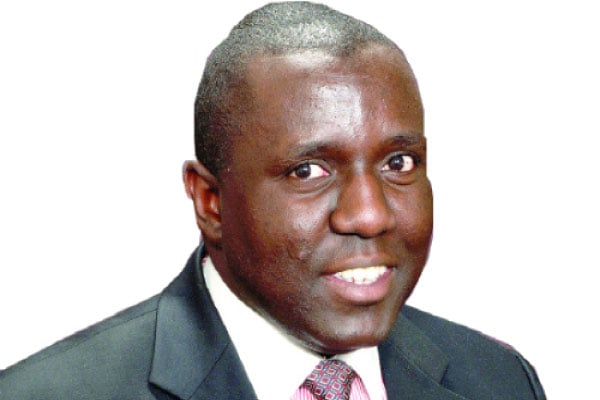Covid-19 sheds light on leaks in our infrastructure

Author: Mr Karoli Ssemogerere is an Attorney-at-Law and an Advocate.
As of this week, Uganda, Kenya and Tanzania have run to the IMF for budgetary support. Tanzania accessed about $250 million in March 2021 and in return IMF demanded visibility of the IMF pandemic at the national policy level. Kenya applied for $2 billion, a move that raised eyebrows as Kenya’s finances have been bombarded by pre-election fever expenditures.
Kenya has raised taxes and is now required by IMF conditionalities to shed light on ownership of entities winning big tenders. It’s a mystery that institutions like IMF still believe that sunshine laws work in African settings or that it’s possible to dismantle entrenched power through such measures. Uganda finished the trio this week with a nearly $1 billion credit facility “laced” with sunshine measures.
These developments come at a time when Bank of Uganda is warning that Uganda is about to breach its fiscal ceiling. Covid 19 has strained agriculture and tourism. But the situation in agriculture may yet change. The biggest turbulence in the economy is structural. After 35 years, Uganda’s economy is still constructed around the Kampala metropolitan area. It’s a travesty that Uganda’s second largest town (or city) , Jinja is mostly a growing urban slum that could easily fit in one of the bigger slums of Kampala. A short drive from the main Kenya-Uganda highway to Kimaka (where the Army College is resident, past Kimaka airfield) shows the limits of Uganda’s positive economic story. Even recent structures like one named for one of the two MPs from Jinja in the last Parliament express this malaise. So do former icons like the Source of the Nile a historical landmark in Jinja. The situation is repeated in other areas, Sugar Corporation of Uganda in Lugazi, a major underpin in Uganda’s industrial establishment, is a modern shanty town as its infrastructure ages. Masaka has a new town/old town bifurcation where the old town is hardly growing and Nyendo township until the recent facelift was exhibit one of neglect.
Some good things may come out of this. After system failures, Covid-19 may force Uganda to establish some form of national healthcare system. This activity is well-suited to be funded at the local government level where financial outlays continue to shrink. In the 2021-2022 budget, Uganda’s resource envelope of Shs44 trillion is dominated by interest on debt repayments and foreign aid credits to shore up Shs22 trillion in domestic revenue collection.
Uganda’s economy continues to be centred around Kampala. Kampala metro region contributes 70 per cent of revenue collection, 80 per cent of GDP and 90 per cent of all credit transactions are in Kampala. While banks have avoided systemic defaults by rolling over credit and delaying provisioning (a situation likely to be repeated in 2022) as the pandemic enters the third year, the banking industry will be looking at a heap of bad loans in 2022-2023.
A new line of investment is necessary to shore up the health sector driven by necessity by targeting resources to rebuild on a serious level the capacity of Uganda to treat its growing population. In Covid-19 we learnt how lightly regulated hospitals can discharge bills (normally associated) for very serious conditions in the upwards of $20,000.00 for those who can afford. Every day property for sale postings are flooding the market as families burn up their life’s savings to retrieve their dead from hospitals and bury the dead. In the new normal, its even time to think of more drastic measures like cremation should cases continue to surge.
The Ministry of Health has unloaded a new round of AstraZeneca vaccines. The National Drug Authority in a panic has given limited approval to a herbal drug Covidex. Combined with the lockdown, this is probably the best one can do. Several countries are slamming AstraZeneca as being fairly feeble against the new highly infectious Delta variant. With respect to Covidex, the effort should turn to anti-retrovirals and we should be hearing more from the Virus Research Institute than other places. As for lockdown the Ministry of Works is surprised that there are one million essential workers in Kampala, they should know that Uganda’s economy is a big dot in Kampala and scattered dots everywhere else.
Prime Minister Robinah Nabbanja has kicked off her tenure with a targeted stimulus of Shs100, 000 to socially vulnerable groups in metro-Kampala. The heavy rains of 2020-2021 are shielding Uganda’s working class from food shortages as the prices of ordinary foodstuffs are within range even though farmers’ incomes are likely to drop for the sixth consecutive year.
Mr Ssemogerere is an Attorney-At-Law and an Advocate.




